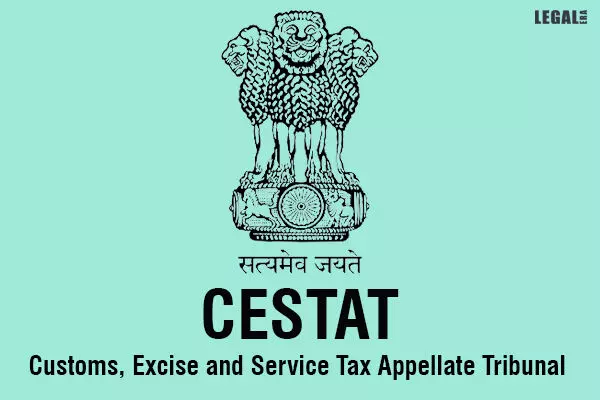- Home
- News
- Articles+
- Aerospace
- Agriculture
- Alternate Dispute Resolution
- Banking and Finance
- Bankruptcy
- Book Review
- Bribery & Corruption
- Commercial Litigation
- Competition Law
- Conference Reports
- Consumer Products
- Contract
- Corporate Governance
- Corporate Law
- Covid-19
- Cryptocurrency
- Cybersecurity
- Data Protection
- Defence
- Digital Economy
- E-commerce
- Employment Law
- Energy and Natural Resources
- Entertainment and Sports Law
- Environmental Law
- FDI
- Food and Beverage
- Health Care
- IBC Diaries
- Insurance Law
- Intellectual Property
- International Law
- Know the Law
- Labour Laws
- Litigation
- Litigation Funding
- Manufacturing
- Mergers & Acquisitions
- NFTs
- Privacy
- Private Equity
- Project Finance
- Real Estate
- Risk and Compliance
- Technology Media and Telecom
- Tributes
- Zoom In
- Take On Board
- In Focus
- Law & Policy and Regulation
- IP & Tech Era
- Viewpoint
- Arbitration & Mediation
- Tax
- Student Corner
- AI
- ESG
- Gaming
- Inclusion & Diversity
- Law Firms
- In-House
- Rankings
- E-Magazine
- Legal Era TV
- Events
- News
- Articles
- Aerospace
- Agriculture
- Alternate Dispute Resolution
- Banking and Finance
- Bankruptcy
- Book Review
- Bribery & Corruption
- Commercial Litigation
- Competition Law
- Conference Reports
- Consumer Products
- Contract
- Corporate Governance
- Corporate Law
- Covid-19
- Cryptocurrency
- Cybersecurity
- Data Protection
- Defence
- Digital Economy
- E-commerce
- Employment Law
- Energy and Natural Resources
- Entertainment and Sports Law
- Environmental Law
- FDI
- Food and Beverage
- Health Care
- IBC Diaries
- Insurance Law
- Intellectual Property
- International Law
- Know the Law
- Labour Laws
- Litigation
- Litigation Funding
- Manufacturing
- Mergers & Acquisitions
- NFTs
- Privacy
- Private Equity
- Project Finance
- Real Estate
- Risk and Compliance
- Technology Media and Telecom
- Tributes
- Zoom In
- Take On Board
- In Focus
- Law & Policy and Regulation
- IP & Tech Era
- Viewpoint
- Arbitration & Mediation
- Tax
- Student Corner
- AI
- ESG
- Gaming
- Inclusion & Diversity
- Law Firms
- In-House
- Rankings
- E-Magazine
- Legal Era TV
- Events
CESTAT: In Undisputed Ownership Department Cannot Self-Assign Duty to Declare Certificate Bad in Law Issued to Importer

CESTAT: In Undisputed Ownership Department Cannot Self-Assign Duty to Declare Certificate Bad in Law Issued to Importer
The Customs, Excise, and Service Tax Appellate Tribunal (CESTAT), Ahmedabad by its division member bench of Somesh Arora (Judicial Member) and Raju (Technical Member), has observed that the department cannot self-assign to itself the duty of declaring bad in law the certificate issued to the importer by Ministry of Renewable Energy or decide title of the goods, even when no one is disputing ownership.
The factual matrix of the case is that the appellant/assessee filed a bill of entry and claimed exemption applies to all items of machinery and apparatus required for setting up a solar power generation project when imported into India.
The relevant certificate claim exemption from the Ministry of New and Renewable Energy was duly produced to claim such exemption The Department, however, made investigations against them on the ground that a certificate was obtained and an exemption claimed. Even when they were not owners of the goods, and the High Sea Sale Agreement was shown just for the sake of exemption.
The Department held that the High Seas Sale Agreement was not genuine, and it undertook an investigation by recording various statements to show that the exemption had been wrongfully claimed. Whereas the primary Engineering, Procurement and Construction (EPC) contract provided that it was the duty of Appellant- M/s Photon Energy Systems Limited Ltd (PESL) to procure all the equipment and to pay customs duty.
The Appellant contended for the purpose of Section 2(26) of the Customs Act, 1962the importer is one who holds himself as an importer for the purposes of importation by filing Bill of Entry etc., and that department has not brought anything on record that certificate produced by them from the Ministry of New & Renewable Energy was at any stage withdrawn or got cancelled by it. That in the absence of any claim by anyone of being an owner in the transaction, department is precluded from itself determining ownership for the purposes of Section 2(26).
The CESTAT while referring the decision passed in that case of Schlumberger Asia Services Ltd vs. Commr. of Cus. (Adj.), Mumbai (larger bench), held that terming of import as improper, even when there is no contest to the ownership, and the person claiming to be importer continues to hold himself as an importer and the Ministry issuing certificate continues to treat the appellant as the importer, is not maintainable.
“Existence or otherwise of High Sea Sales Agreement makes no difference under Section 2 (26) of the Customs Act, 1962 regarding documented and claimed “Importer”. In the face of irrelevance of high sea sales agreements in view of requirements of Section 2(26), Frustra probatur quod probatum non relevant (that what is proved in vain when proved is not relevant) applies in the instant case,” the bench observed.
Accordingly, the CESTAT set aside the order passed by the learned Commissioner with consequential relief in penalty.



